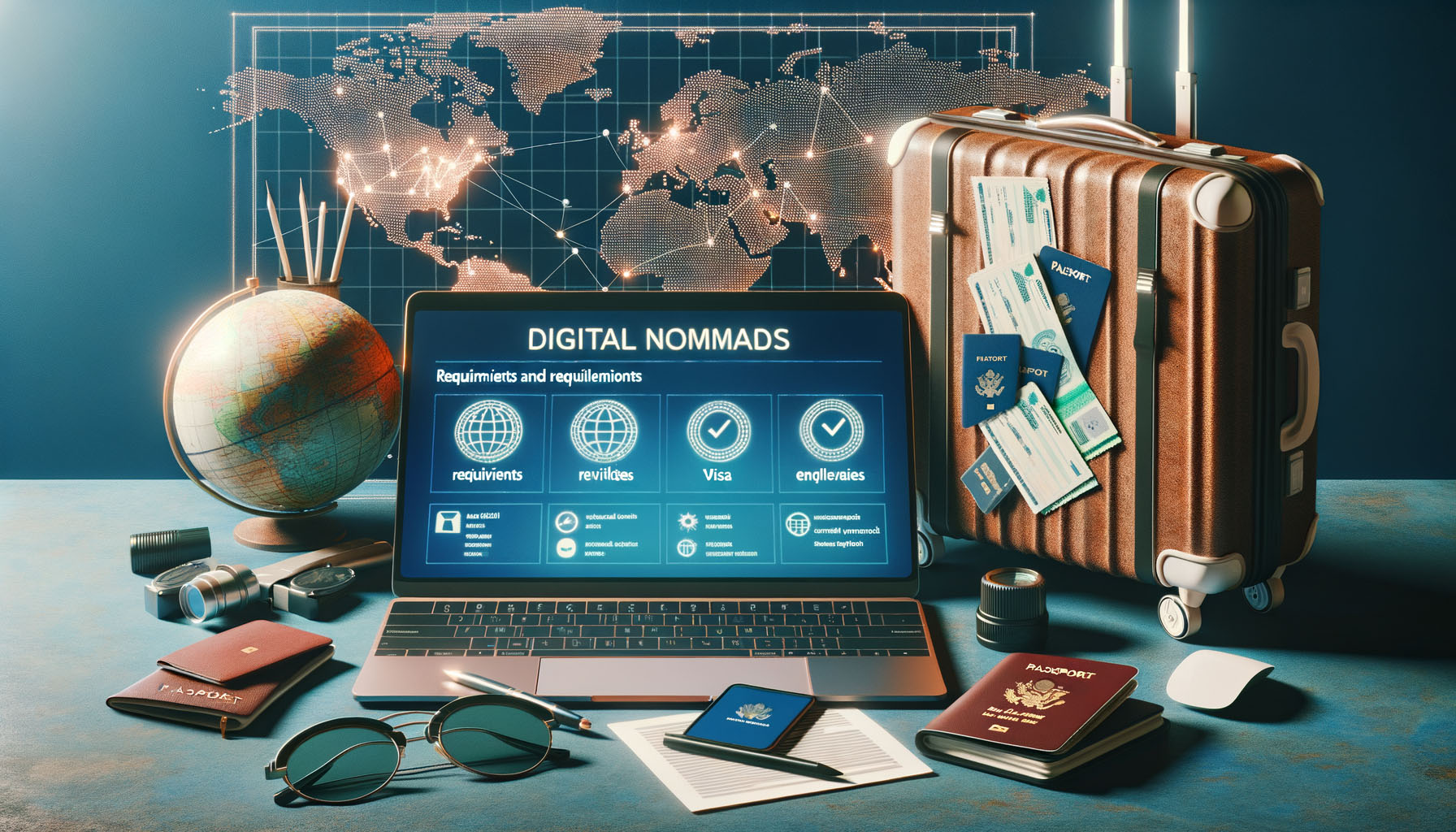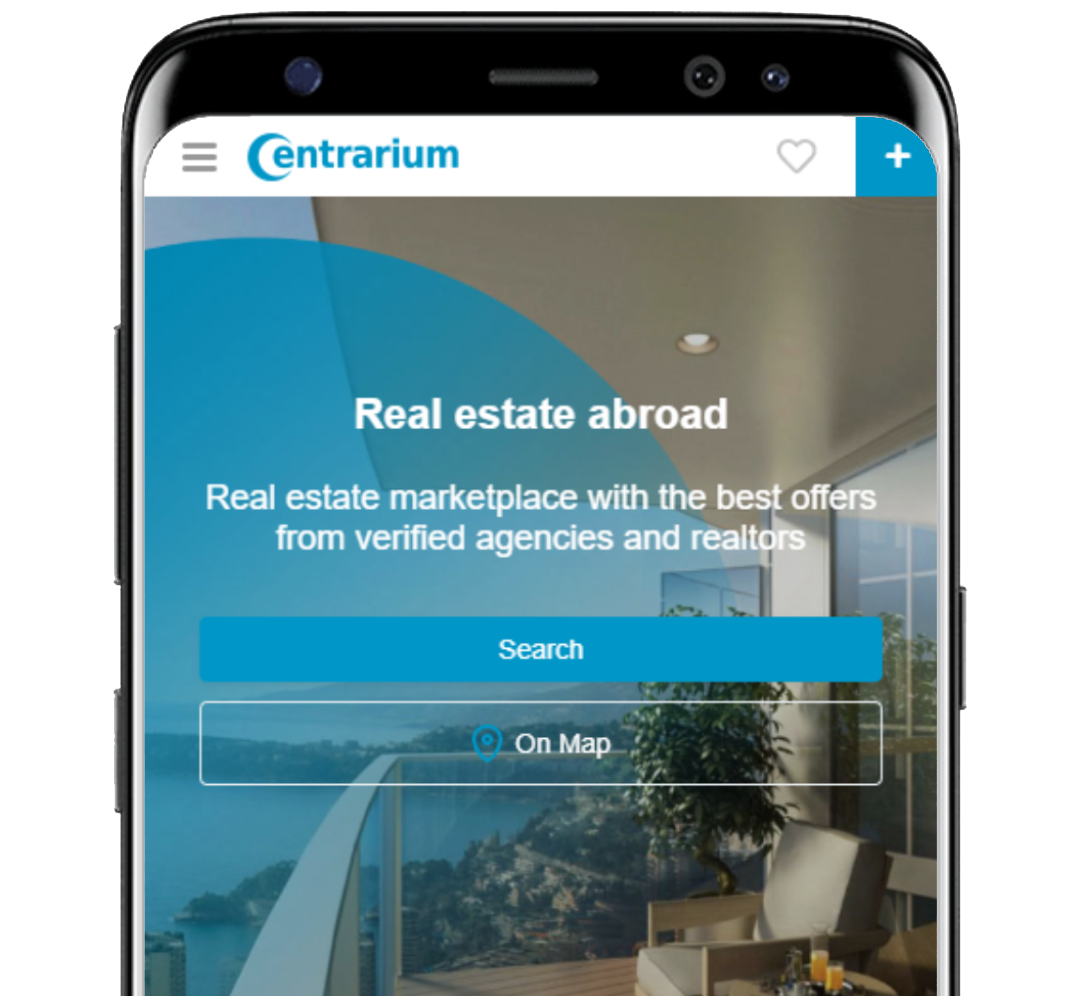
Visas for digital nomads — life on the road: new opportunities for remote work abroad, an introduction to the world of digital nomads.
In recent years, the world has witnessed significant changes in work and lifestyle. One of the most notable trends has been the emergence of so-called “digital nomads” — people who, thanks to modern technology, can work remotely from anywhere in the world. This phenomenon has led many countries to start offering special visas for such workers, opening up new opportunities for those who want to combine work and travel.
What is a visa for digital nomads?
A digital nomad visa is a special type of visa that allows people who work remotely to legally reside in a country for a certain period of time. These visas are usually for freelancers, entrepreneurs, and company employees who can do their work from anywhere with internet access.
Why do countries offer these visas?
Many countries see digital nomads as a potential source of economic growth. These people often have high income levels and can make a significant contribution to the local economy without competing in the local labor market. In addition, digital nomads can contribute to local digital ecosystems and bring in new ideas and skills.
How to choose the right visa?
When choosing a visa for digital nomads, it is important to consider several key factors:
- Minimum income requirements.
Many countries set a minimum income threshold to qualify for a visa. This can range from no requirements, as in Albania, to significant amounts in some more expensive countries. - Tax incentives.
Some countries offer attractive tax conditions for digital nomads. For example, Albania and Germany have certain tax incentives, which can make these countries more attractive to those who want to optimize their expenses. - Possibility of obtaining permanent residence.
For those who are planning a long-term stay, it is important to consider the possibility of obtaining permanent residence (Permanent Residence). Some countries, such as Albania, offer this option, while others, such as Germany, have stricter conditions for obtaining a permanent residence permit. - Official address requirements.
Some countries may require you to have an official residential address. This is important to consider when planning your move and looking for accommodation. - Health Insurance.
Many countries require health insurance to obtain a visa. This is an important aspect to consider when calculating the total cost of living abroad. - Criminal record certificate.
Some countries may require a criminal record certificate. This is a standard procedure to ensure security and to check the credibility of applicants.
An overview of popular countries for digital nomads
- Albania.
Albania has become one of the most attractive destinations for digital nomads due to the lack of minimum income requirements and the availability of tax incentives. In addition, the country offers the possibility of obtaining a permanent residence permit, making it an ideal option for those considering long-term residency. Albania attracts digital nomads not only for its visa conditions, but also for its beautiful nature, rich culture and relatively low cost of living. The country offers both modern urban settings in the capital Tirana and picturesque coastal towns along the Adriatic and Ionian Seas. To obtain a digital nomad visa in Albania, you must provide proof of remote work or your own business, as well as evidence of a stable income. The application process usually takes about a month and the visa is issued for up to one year with the possibility of extension. - Germany.
Germany also offers a visa for freelancers and the self-employed that can be used by digital nomads. Unlike Albania, Germany has minimum income requirements but also offers certain tax benefits. Germany attracts digital workers with its developed infrastructure, high standard of living and strong economy. Major cities such as Berlin, Munich and Hamburg offer vibrant startup ecosystems and plenty of networking opportunities. To obtain a visa in Germany, you will need to submit a business plan, evidence of relevant skills and financial stability. The process can take several months and the visa is initially granted for up to three years with the possibility of renewal. - Portugal.
Portugal has been one of the pioneers in providing visas for digital nomads in Europe. The country offers attractive conditions, including relatively low minimum income requirements and the possibility of receiving tax benefits under the Non-Habitual Resident (NHR) program. Portugal attracts digital nomads with its mild climate, beautiful beaches, rich culture and relatively low cost of living compared to other Western European countries. Cities like Lisbon and Porto offer vibrant startup scenes and plenty of co-working spaces. A D7 visa (which is often used by digital nomads) requires proof of a stable income, housing in Portugal and health insurance. The process can take several months and the visa is initially granted for two years with the possibility of renewal. - Estonia.
Estonia was one of the first countries to introduce a special visa for digital nomads. The country is known for its advanced digital infrastructure and its e-Residency program, which allows you to do business remotely in the EU. Estonia attracts digital workers with its innovative environment, high level of digitalization of public services and quality of life. The capital Tallinn offers a unique combination of medieval architecture and modern technology. To obtain a digital nomad visa in Estonia, you need to prove a stable income (minimum 3504 euros per month), health insurance and no criminal record. The visa is issued for a period of up to one year. - Thailand.
Thailand has recently joined the list of countries offering visas for digital nomads. The country attracts remote workers with its beautiful beaches, rich culture and low cost of living. To obtain a long-term visa in Thailand, you must prove a stable income (minimum $80,000 per year), health insurance and no criminal record. The visa is issued for up to 10 years, making Thailand one of the most attractive destinations for long-term residence. - Dubai (UAE).
Dubai offers one of the most attractive visas for digital nomads in terms of taxation. There is no income tax in the UAE, making the country particularly attractive to highly paid professionals. The Dubai visa requires proof of a minimum annual income of $5,000 per month, health insurance and an employment contract, or proof of your own business. The visa is issued for one year with the possibility of renewal. - Barbados.
Barbados offers a Welcome Stamp program that allows digital nomads to live and work on the island for a year. This visa is particularly attractive to those seeking a tropical paradise for remote work. The visa requires proof of an annual income of at least $50,000, health insurance and no criminal record. The visa is issued for 12 months with the possibility of renewal. - Croatia.
Croatia recently introduced a visa for digital nomads, attracting remote workers with its beautiful coastline, historic cities and relatively low cost of living compared to other EU countries. The visa requires proof of a minimum monthly income of around €2,300, health insurance and no criminal record. The visa is issued for a period of up to one year with the possibility of extension. - Georgia.
Georgia offers the Remotely from Georgia program, which allows digital nomads to live and work in the country for a year. Georgia attracts with its beautiful nature, rich culture and hospitality. The visa requires proof of a minimum monthly income of $2,000, health insurance and no criminal record. The visa is issued for one year. - Costa Rica.
Costa Rica recently introduced a visa for digital nomads, attracting remote workers with its beautiful beaches, abundant nature and stable political situation. The visa requires proof of a minimum monthly income of $3,000, health insurance and no criminal record. The visa is issued for up to two years with the possibility of extension.
Install our app and get all the tools you need to search for real estate abroad in your smartphone! The mobile application will allow you to quickly access your personal account, manage your favorite properties and track your requests, directly exchange messages with sellers and buyers.

How do I prepare to move as a digital nomad?
- Research visa requirements.
Carefully research the visa requirements of your chosen country. Make sure you meet all the criteria, including minimum income, having health insurance, and other specific requirements. - Plan your finances.
Make a detailed financial plan that takes into account not only your income, but also living expenses, taxes, and contingencies. Remember that the cost of living can vary greatly from country to country. - Organize your workspace.
Make sure you have everything you need to work effectively remotely. This may include a reliable laptop, quality headphones with a microphone, and perhaps a portable Wi-Fi router. - Learn the local culture and language.
Before moving, try to learn as much as you can about the culture and customs of your chosen country. A basic knowledge of the local language can also be very helpful. - Find accommodation.
Research housing options in your chosen country. Many digital nomads prefer to start with short-term rentals so they can explore different neighborhoods before making a long-term decision. - Secure health insurance.
Make sure you have adequate health insurance that covers you in your chosen country. Many digital nomad visas require comprehensive health insurance. - Prepare the necessary documents.
Gather all the necessary documents for your visa application. This may include proof of income, employment contract or business documents, a criminal record certificate, and health insurance. - Consider the tax implications.
Consult with a tax professional to understand what tax obligations you will have in your new country and in your country of origin. - Build a network of contacts.
Join online communities of digital nomads in your chosen country. This can be a great way to get practical advice and make new acquaintances. - Be flexible.
The benefits of a digital nomad lifestyle
Becoming a digital nomad gives you unprecedented freedom of mobility and choice of location. But there are other perks as well:
— Getting to know new cultures from the inside out
— Broadening your horizons and stepping out of your comfort zone
— New professional connections and opportunities
— Tax optimization
— Lower costs in countries with low cost of living
— Self-realization and personal growth
— Not being tied to one place
Of course, this lifestyle requires a certain amount of financial stability, organization and flexibility. But for many, the freedom and opportunity to see the world is priceless.
Inspiring stories of digital nomads
Beyond theory, it's worth turning to real-life examples of successful digital nomads:
— A family of programmers traveling the world with their kids and working remotely
— A designer living in different cities around the world for 3 months at a time
— An entrepreneur running a business from exotic destinations
— A freelancer combining remote work and volunteering in different countries
Their incredible stories demonstrate how the lifestyle of a digital nomad can be diverse and full of adventure. From surfing in Bali to hiking in Patagonia, this world is open to endless possibilities and experiences. So, if you're up for a new challenge and crave variety, the lifestyle of a digital nomad could be your next big adventure. All you need is access to the internet and the desire to discover new horizons!
Compare prices of accommodation abroad — our Centrarium overseas real estate marketplace can help you.
 16
16
 20
20
 2
2
 4
4

In this article we will look in detail at the recent changes in the Finnish labor market due to the reduction in the number of work permits issued to foreign nationals. The key economic, demographic and social factors influencing this process will be analyzed, as well as the prospects and new directions of development of the Finnish labor market.

Working from abroad used to be rare, but now it's becoming more common. Learn about the possibilities of moving abroad with a digital nomad visa. Explore the requirements, participating countries, the process of obtaining one, and additional benefits. Discover new horizons of working in other countries!

How to start a career in Italy: tips for foreign workers. Learn how to confirm qualifications, write a CV, get a work permit and an EU tax card. Use online resources to find a job...








 41.51
41.51  1
1  1
1  1
1  2
2 








